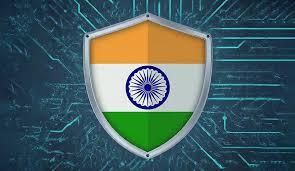India Cyber Security Market Analysis, Revenue & Insights | 2035

The Indian cybersecurity market is a cauldron of intense, multi-dimensional competition, reflecting the country's strategic importance as a global digital hub and a prime target for cyber adversaries. A detailed review of the India Cyber Security Market Competition shows a complex battle being waged on multiple fronts: technology platforms versus best-of-breed point solutions, global giants versus domestic champions, and a constant struggle for the limited pool of skilled cybersecurity talent. The high stakes of this competition are underscored by the potential consequences of failure—crippling ransomware attacks, massive data breaches of citizen information, and disruption of critical national infrastructure. The market's rapid growth serves to amplify this competitive pressure. The India Cyber Security Market size is projected to grow USD 51.88 Billion by 2035, exhibiting a CAGR of 14.85% during the forecast period 2025-2035. This massive prize pool ensures that vendors are competing aggressively on every vector, from product innovation and pricing to channel strategy and government relations, making the Indian market one of the most challenging and dynamic in the world.
The central axis of competition is the platformization war. Global leaders like Palo Alto Networks, Fortinet, and Microsoft are aggressively pushing an integrated platform strategy. They argue that the only way to effectively manage the complexity of modern threats is to have a single, unified security fabric that provides visibility and control across the network, cloud, endpoints, and applications. Their competitive advantage lies in offering a simplified security stack, reduced vendor friction, and the potential for better threat correlation across different security domains. This platform approach is in direct competition with the best-of-breed philosophy, which argues that specialized point solutions from different vendors offer superior efficacy in their respective areas. A large Indian bank, for example, might choose to buy its firewall from one vendor, its endpoint protection from another, and its data loss prevention tool from a third, believing that each is the best in its class. This creates a continuous competitive tension between the convenience of an integrated platform and the perceived superior performance of specialized tools.
This primary conflict is further complicated by the unique competitive dynamics of the Indian market. The major Indian IT services firms (TCS, Wipro, Infosys) act as powerful "kingmakers." While they are channel partners for the global vendors, their recommendations carry immense weight with their large enterprise clients. A vendor's ability to build a strong strategic alliance with these SIs is often more critical to winning a large deal than having a marginally better product. Another competitive front is emerging around data sovereignty and compliance with the new Digital Personal Data Protection (DPDP) Act. This is creating an opportunity for domestic companies and international vendors who have invested heavily in local data centers and can demonstrate strong compliance capabilities. They are competing by positioning themselves as the "trusted, compliant" choice for handling sensitive Indian data. Finally, the "war for talent" is a critical, behind-the-scenes competitive battle. The ability of a company, whether a vendor or a service provider, to attract and retain India's top cybersecurity professionals is a fundamental determinant of its long-term success and ability to deliver high-quality services.
Top Trending Reports -
US Enterprise Communication Infrastructure Market
- Art
- Causes
- Crafts
- Dance
- Drinks
- Film
- Fitness
- Food
- Spellen
- Gardening
- Health
- Home
- Literature
- Music
- Networking
- Other
- Party
- Religion
- Shopping
- Sports
- Theater
- Wellness
